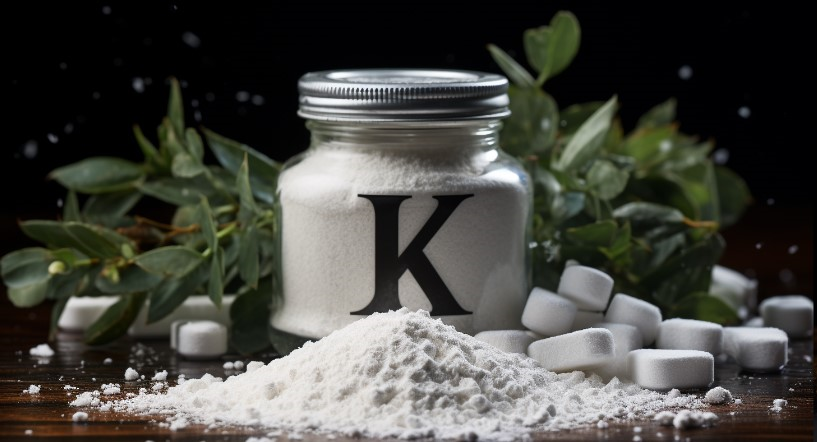Секрет питательного вещества для человека - витамина К

Витамин K (VK), also known as the clotting vitamin, is a group of compounds that show anti-bleeding activity. Natural vitamin K includes Vitamin K1 and Vitamin K2, and synthetic ones include K3 and K4.
Витамин K1 (VK1) : also known as “chloroquinone”, commonly found in green leafy vegetables, the main role is to maintain the body’s clotting function.
Чистый Vitamin k2 powder (VK2) : Also known as menadione, which is produced by gut bacteria and also found in some fermented foods, is an important substance for maintaining bone and heart health.
The main physiological functions of vitamin K
Regulate bone metabolism and maintain bone health
vitamin k2 benefits: vitamin k2 supplement is not only a coenzyme of glutamate carboxylase, but also a transcriptional regulator of bone-specific genes, which is involved in bone development.
Osteocalcin forms gamma-carboxylated osteocalcin with the help of VK2, and binds to type I collagen to form scaffold, which has a strong affinity for calcium and becomes a site for calcium salt deposition, promoting bone mineralization. At the same time, VK2 inhibits osteoclast formation and osteoclast-mediated bone resorption, thereby reducing bone calcium loss and regulating bone metabolism. Vitamin K is believed to be closely related to abnormal bone development in children.
Reduce blood calcium deposition and prevent cardiovascular disease
Vascular calcification is one of the risk factors for coronary heart disease. Abnormal accumulation of calcium can reduce aortic and arterial elasticity. Matrix gamma-carboxyglutamate protein (MGP) is a vitamin K-dependent protein, and vitamin K is an essential cofactor for its carboxylation. Activated MGP can reference calcium to the correct target organs, reducing the risk of vascular calcification and coronary heart disease.
Regulate the synthesis of coagulation factors and maintain coagulation function
Vitamin K is essential for the normal clotting process. Clotting factors II, VII, IX, and X are vitamin K-dependent clotting factors. Vitamin K deficiency causes decreased activity of related clotting factors, manifested by various bleeding symptoms, difficult to stop bleeding, slow wound healing and so on.
The dietary requirement for vitamin K is low, and for most people a normal diet can meet basic needs. Excessive intake of vitamin K can lead to breathing difficulties, skin blisters, hemolytic anemia, hyperbilirubinemia, and nuclear jaundice.
Because vitamin K does not easily cross the placenta, neonatal deficiency is more common. Other patients such as liver and gallbladder diseases, long-term diarrhea, chronic gastrointestinal diseases, long-term use of anticoagulant drugs, etc., are also prone to vitamin K deficiency. The manifestations are skin, mucous membrane and internal bleeding (such as nosebleeds), slow wound healing, osteoporosis, bone hyperplasia, vascular sclerosis, etc.
